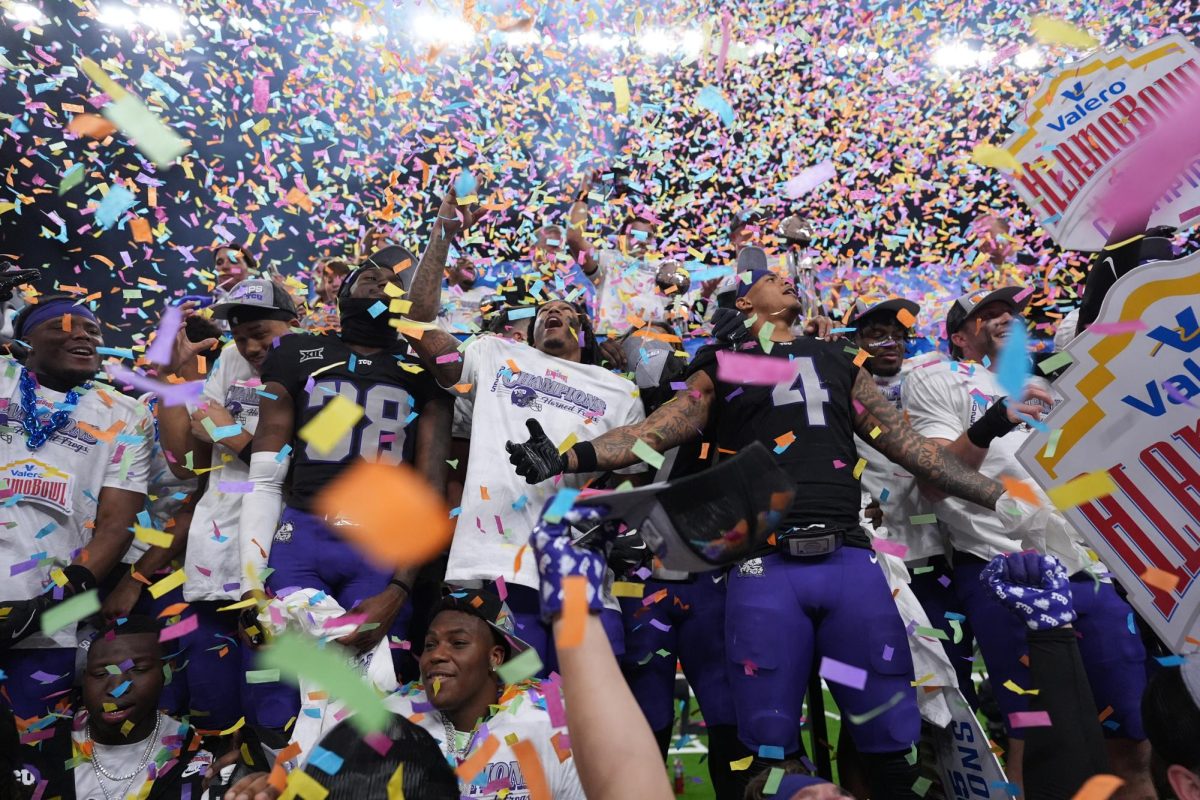TCU head coach Gary Patterson said at his weekly press conference Tuesday that while his team has had three close contests this season, the Horned Frogs need to learn to close out games.
“We pulled within three of LSU [in the fourth quarter],” Patterson said, “and we’re tied with like five to six minutes left to go against Texas Tech. So you’ve got to go find a way to finish a ball game and go make that one play that’s going to make difference.”
The Frogs will look to do that this Saturday when they play SMU at 11 a.m. on Fox Sports 1. Patterson spoke specifically about how quarterback Trevone Boykin has to trust his teammates to make those plays instead of trying to do everything on his own.
“The biggest thing is that Trevone’s got to understand that he’s got to use everybody else,” the coach said. “We’ve got some good players at the running back [and] wide receiver positions, and he can’t try to do it all by himself.”
Receivers and running backs have gotten open, Patterson said, and the quarterback has to look for those open receivers when he leaves the pocket instead of giving up and trying to run the ball. He said the team has done scramble drills in practice in order to improve in that respect.
“That’s one of the things I think we can be better at,” Patterson said, “is him seeing, his eyes down the field and finding the guys that are open when he starts scrambling.”
The offense’s problems do not end with Boykin. Turnovers and penalties have hurt the team as well. TCU had four turnovers in the two games against LSU and Texas Tech. The Frogs had six false starts against Texas Tech and multiple holding penalties, at one point starting a drive with a first down and 30.
Patterson said that those things make things more difficult for the offensive coaching staff when they are trying to call plays.
“They don’t put together a game plan for first and 15, or second and 15, or third and 22,” the coach said. “There’s not a good call. Unless you’re just a whole lot better than the other team, there’s just not a lot of good calls [in those situations].”
The fact that the team fought back and put itself in a position to win those games despite those mistakes shows a certain level of toughness, according to Patterson. But the coach also said, “losing can’t be tolerated,” regardless of how close the games are.
“Whether it’s in football, or anything in life, losing is a disease,” he said. “You need to understand this. If you let it go, it spreads…You’ve got to hate losing more than anything else that you do, because then it becomes a priority, and that’s how programs become great or businesses become great or families become great.”




